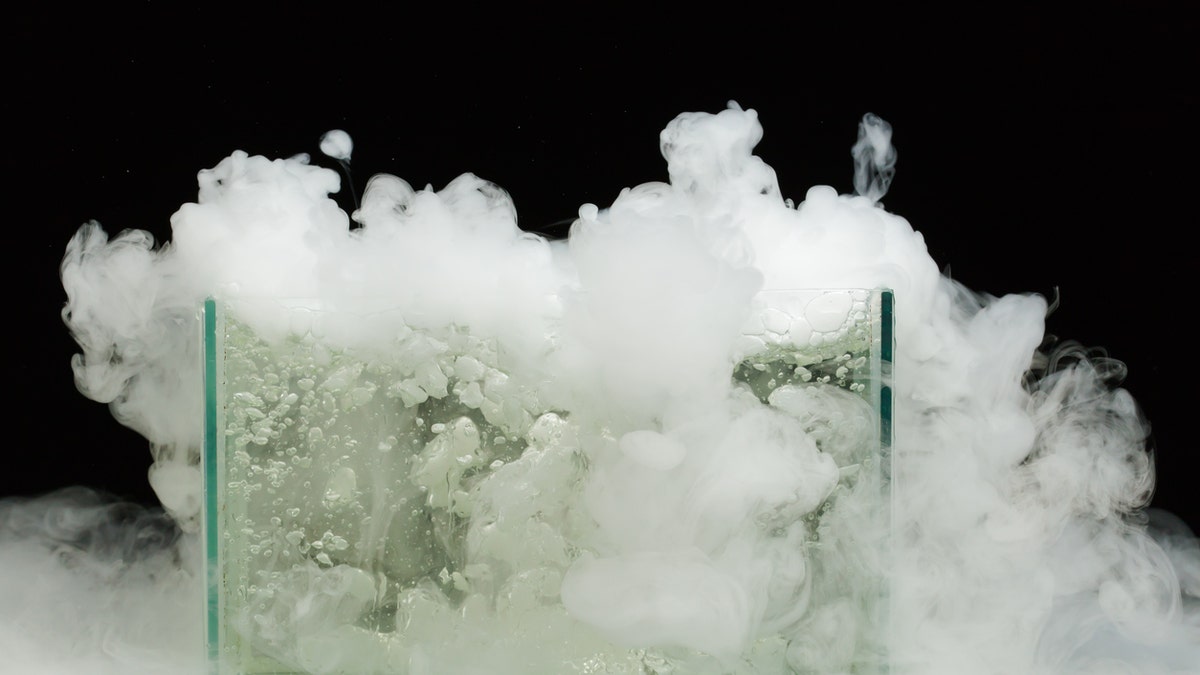
Dry ice is known for the eerie-looking vapor it produces, which is not usually dangerous. But in rare cases, it can be deadly. (iStock)
In a "horrific accident," a woman in Washington died from exposure to dry ice fumes, according to news reports.
The 77-year-old woman was found unresponsive in a car with several containers of dry ice on July 27, according to local news outlet KOMO. The car belonged to the woman's son, an ice cream salesman, who kept four coolers of dry ice in the back of the vehicle. The man's wife had borrowed the car to give the woman, her mother-in-law, a ride home.
But when the man found his wife and mother unconscious in the car, he called 911. The mother likely died of suffocation from the dry ice fumes, and the wife is in critical condition.
"Somehow ... the fumes escaped from the coolers," said Ed Troyer, a spokesperson for the Pierce County Sheriff's Department.
"At this point, we're just looking at this as [a] horrific accident," Troyer told local news outlet The News Tribune.
Dry ice is known for the eerie-looking vapor it produces, which is not usually dangerous. But in rare cases, it can be deadly.
Dry ice is the solid form of carbon dioxide and has a freezing point of minus 109 degrees Fahrenheit (minus 78 degrees Celsius). As dry ice melts, it undergoes a process called sublimation, in which the solid is converted directly into a gas, according to the Centers for Disease Control and Prevention (CDC). If dry ice is stored in an area without proper ventilation, it may cause people to inhale large amounts of the gas CO2, which displaces oxygen in the body, the CDC says. This, in turn, can lead to harmful effects, including headache, confusion, disorientation and death.
Although rare, cases like this have happened before. In 2004, the CDC reported a case of a man who passed out while driving with several bags of dry ice in his car, which he bought to keep food cool in case of a power outage after Hurricane Ivan. The man's wife found him unconscious in the car, but he woke up when she opened the door.
In the new case, officials said there were likely several things that went wrong to cause the woman's death. For instance, the ice cream salesman had recently bought a new car, which probably had better sealing and less ventilation, which trapped in the fumes, Troyer said. "It was a combination of things that went terribly wrong," Troyer told KOMO.
Original article on Live Science.
